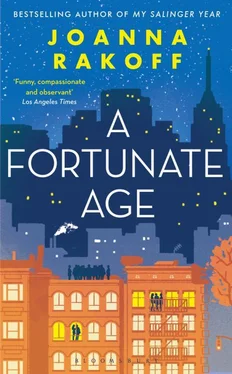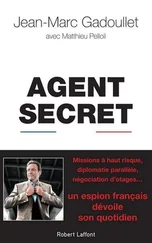A crumpled pack of Basics had materialized on the bar. Curtis pulled two out and handed one to Dave as if they were old friends. “You really think we sound good?” he asked. Dave shrugged. “Yeah, yeah,” Curtis muttered, shaking his head slowly, indicating neither yes nor no, but some sort of befuddlement. His lips were full, the sort described as bee-stung when possessed by women, and looked out of place with his otherwise sparse features. “’Cause I have this weird feeling that we’re getting worse.”
“No, no, man, no way,” said Dave, though he knew, as he said it, that it was a lie, that the shows—the thought, the threat , of the shows—were, it was true, having some sort of pernicious, soul-draining effect on Curtis, who seemed to be losing his Buddha-like countenance, his flannel-shirted imperviousness to—no, disregard for—the treats and temptations of the normal, lucre-propelled world. All of a sudden it dawned on him: Curtis wanted it. That’s why he was rattled. He wanted it all. The record deal, the European tour, the Rolling Stone cover. He had wanted it all along, wanted it rabidly , wanted it so badly he couldn’t even speak . And suddenly Dave liked him.
“Well,” Dave said, “it’s probably for the best, right? Nobody’d sign us if we were too good. Right? It’s all about mediocrity.” To his surprise, Curtis laughed—a true, honest-to-God, fully formed laugh , which gave Dave an embarrassing sense of satisfaction. He likes me , he thought, and the thrill this gave him immediately dissolved into shame. He was drunk, he realized.
“Seriously,” said Curtis, scrutinizing the still-pristine filter of his cigarette. His voice had dropped down to its normal whisper. “I don’t think it’s working. It’s like, we sound too much the same , you know. I keep”—he waved his hands and shook his head—“futzing with it, but it’s still not right. We need something else, you know?”
“I don’t know,” Dave answered. But then, all of a sudden, he did know and blood began to pound at the delicate centers of his ears and through the rigid veins at his wrists and temples. Even the smallest fibers of his being seemed to stand on end, screeching at him to speak plainly, for once, to scrape off this stupid mask of ironic indifference, because what good had it ever done him, anyway, and his mouth opened, the words already formed and spilling out of it, for they had been lying dormant now for weeks, lined up and ready to march out along his tongue, to crawl out into the world and pierce the heart of his no-longer enemy. “Yes, Curtis,” he would say, “I completely comprehend your meaning, despite your utter and complete inability to speak in normal English sentences, which everyone apparently finds charming and indicative of your superior intelligence and freakish musical talent, but which I happen to find annoying, but all that aside , I have that something else you think we need. If you would proceed with me to the piano, I will play you the three songs that will, I believe, win us fame and fortune and ass-licking reviews in the New York fucking Times and the love of that loser Reynold Marks, which is maybe a sellout, asshole thing to want, but I want it, and you know you want it, too, because he can help us, and I need some help right now, and so do you, since you’re living in a fucking pup tent and you clearly haven’t bathed in weeks. So come with me to the piano, my friend, come with me right now . Curtis, my friend, I am your man .”
But he didn’t say this or anything like it. He said, casually, “I think we sound good,” even as Sadie’s voice somehow, in his head, morphed with his mother’s voice into a chorus of “ Dave, what is wrong with you? ” And for them he had no answer, other than that there was some perversity of spirit, some untraceable, possibly archaic, pretty definitely misguided—he knew, he knew!—idea that true genius, or even just a good pop song, should be discovered by accident, by fate, rather than by canny maneuvering or self-promotion or mere suggestion. If he asked for it and received it, the resultant triumph would be cheapened, tainted, by his efforts. Or maybe it was that he was afraid to fail. Again. “Seriously, man, we sound good,” he said again, because an unfamiliar expression was distorting the calm sea of Curtis’s face, an expression Dave slowly recognized—with shock—as anger.
“Don’t lie to me, okay,” said this new, unfamiliar Curtis, his voice rising in volume. “I’m trying to talk to you.” And then, as if in a dream, he heard Sadie’s—and his mother’s!—words come out of Curtis’s mouth. “What’s wrong with you, man?” Dave looked at him, speechless. “I mean, what’s your problem with me. Or with us. You act like we’re a bunch of stupid kids. I just don’t get it. I am so sick of your attitude.” Bending low over the bar, Curtis at last lit his cigarette, his face growing increasingly red and taut, as if someone had turned a crank and tightened the flesh that covered it. “We’re a band, man . We’re supposed to be like a family.” He took a sharp breath. “You think we’re too”—again, the wave of his bony hand—“for your songs.”
Dave had gone from speechless to stunned. Accused, he almost found himself issuing denials: Songs? What songs? But even he was not this perverse. A strange calm settled over him in the face of Curtis’s fury. Instead, he said, “What do you mean?” Curtis sighed heavily, took off his thick-rimmed glasses, and placed them carefully on the bar. His eyes looked small and vulnerable without them.
“I’m really tired,” he told Dave.
“Me, too,” said Dave. “We should get some sleep.”
“Yeah,” said Curtis. “So, you’re starting your own project? That’s it, right?”
“What?” Dave asked. “Oh. No. I don’t have”—he smiled, for as he said it, he knew it was true—“the necessary leadership skills.”
“Then what’re the songs for. What’re you gonna do with them?”
Dave blinked. “I don’t know,” he said. “How—”
“Sadie Peregrine told me,” said Curtis. “She said they’re, like, the best thing ever.” The blood returned to Dave’s ears and resumed its infernal crashing, washing out the sounds of the bar, the clanking of glasses, the hiss of the soda nozzle, the clack of balls on the pool table behind him. Sadie? Curtis and Sadie had met once, maybe twice, in passing. When? At Lil’s party, a month or two ago? Yes. Why had they been discussing him—not just him, but his most private, crazy-making pursuits. Curtis was moving his mouth again, but Dave could hear nothing of his words for the cacophony in his ears and the hot flush that had crept into his cheeks, which seemed to emit a sound, a buzz or hum, of its own. He was furious. And he felt, without willing them to, his legs pulling his body down off the bar stool and readying for flight. “She’s really cool,” he heard Curtis say from a million miles away.
“No,” said Dave, slinging his bag over his shoulder, already loathing himself for this small betrayal. “She’s not.”
Curtis Lang met Emily Kaplan at a party given by Dave Kohane the following summer. It was Labor Day, in the year 2000, and the entire group was in town for the holiday weekend. All except Tal, who was in Israel shooting some sort of thriller. “It’s 110 degrees here,” he’d emailed Dave the week before. “But it’s amazing.” They’d all agreed to come to Dave’s little thing, just twenty people or so, the first gathering he’d held at his apartment, though he’d been living in it for a year and a half now. The previous owners had left a small barbecue, which he’d never used, so he decided to serve up a big batch of ribs. On the Saturday before the party, he went to his parents’ place and obtained a recipe that called for brining and marinating the ribs, which were supposed to be the large beef kind, but (according to his father) could possibly be the small pig kind, then walked over to the butcher on Smith Street to pick up the meat, only to find that the store—operated by a portly Italian man who owned half the buildings in the area—was closed. Back at home, he called Emily, who was still at her dodgy place in Williamsburg (the rent still $500 per month), and explained the situation. “Do you think any of the Polish butchers on Bedford are open?” he asked. “Would you want to buy a few pounds of ribs and bring them over here?”
Читать дальше












